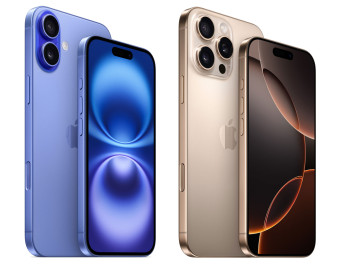
Apple iPhone 16
Apple Spending $1.5 Billion to Expand Satellite Service
A securities filing has revealed a new deal between Apple and Globalstar that will see Apple spend around $1.5 billion in exchange for "the expansion of iPhone services" as well as a 20% equity stake in Globalstar. Globalstar already provides the orbital satellite network for Apple's satellite communication service for iPhones, including Emergency SOS via satellite and Messages via satellite. Globalstar currently operates 31 satellites and allocates 85% of its network capacity to Apple. The company has ordered as many as 26 new satellites to replenish and upgrade its constellation. Competitors such as Iridium and Skylo provide similar services for non-Apple phones. All of these services require specific support in phone hardware, while SpaceX and AST SpaceMobile are preparing to launch satellite coverage services that work with existing phones.
iOS 18 Lets you use Matter Smart-home Devices Without a Hub
Apple has quietly slipped a new smart-home feature into the just-released iOS 18. You can now set up and use a Matter-compatible smart-home device with just your phone, instead of requiring a separate Matter hub device. (Matter is the new open industry standard for cross-platform smart-home technology.) This new feature enables only manual, local control; a hub is still required to operate devices in an automated way, or remotely. Apple says this new feature works with plug-in or hard-wired devices today, while battery-powered devices may require a firmware update to work in this hub-less mode. Matter devices can use Wi-Fi and/or Thread for wireless connectivity. iOS 18 lets any iPhone connect to a Wi-Fi-enabled Matter device. Connecting to a Thread-only device requires an iPhone with a Thread radio. Google also recently started putting Thread radios in its phones, starting with the Pixel 9 series. This implies that Google may add a similar feature to Android soon.

iPhone 16 Brings More Features to All Price Points, Including New Camera Control
Apple has announced the iPhone 16 series, which — compared to previous years' models — does not restrict as many key features to the Pro models, or to the most-expensive Pro Max model. For example, the all-new Camera Control on the side comes on all four models. All four models can also run Apple Intelligence thanks to the new A18 series of chips with 16-core Neural Engine, although Apple has delayed Apple Intelligence until iOS 18.1 (and some features of it until a later update). The smaller iPhone 16 Pro also has the 5x telephoto camera that was previously exclusive to the Pro Max. The new Camera Control detects light and firm touches, as well as swipe gestures. This provides a faster way to launch the camera and snap photos and videos, as well as adjust settings. A new Visual Intelligence feature lets you use the camera to summon business info from Maps, or add an event to your calendar by pointing at a poster. For other visual searches, it seems to rely on Google Image Search or ChatGPT to identify what you're looking at. The ultra-wide camera has been upgraded with auto-focus, and it captures more light, and doubles as a macro camera. The standard models also gain larger batteries. The Pro models have new, larger displays (6.3- and 6.9-inch) with thinner bezels. They retain titanium bodies and advanced triple cameras. The ultra-wide cameras have been upgraded to 48 megapixels and auto-focus. A new A18 Pro chip has several upgrades over the standard A18 chip in the non-Pro models, including a 6-core GPU (instead of 5-core) and larger CPU caches. This enables it to be 15% faster than last year's A17 Pro. A new thermal system enables up to 20% better sustained performance for gaming, and hardware-accelerated ray-tracing is now up to 2x faster. Upgraded ISP and media functions on the Pro chip enable pro-quality 4K video at 120 fps for new Cinematic Slow Motion features, including real-time color grading and Dolby Vision. The Pro models can also capture Spatial Audio with video, thanks in part to four new "studio-quality" microphones. The iPhone 16 and iPhone 16 Plus start at $799 and $899, respectively (both with 128 GB storage, also avail. with 256 or 512 GB). The iPhone 16 Pro starts at $999, with 128 GB storage (also avail. with 256 GB, 512 GB, or 1 TB). The iPhone 16 Pro Max starts at $1199, with 256 GB storage (also avail. with 512 GB or 1 TB). Pre-orders begin Friday, with the phones in stores Sept. 20.








